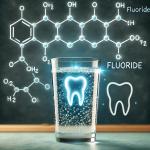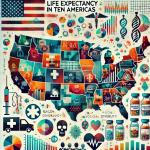With the presumptive ascension of RFK Jr.
Disease
A recent headline proclaimed, “Lifestyle medicine education empowers clinicians.” The article focused on
For nearly 80 years, fluoride has quietly flowed through our water systems, credited as one of the 20th century’s public health victories. RFK, Jr. promises to challenge water districts on fluoridation, turning that legacy on its head.
High-fructose corn syrup has been the "enemy of all mankind for some time now, responsible for a motley assortment of ailments, including obesity, heart disease, and type 2 diabetes.
When Lars Larson invited me to discuss the recent outbreak of H5N1 bird flu in cows, I knew we’d be diving into more than a public health crisis: It's a stark example of government dysfunction.
Concerns about breathing wildfire smoke continue and are often accompanied by dire predictions of imminent mortality based on statistical relationships.
This study, published in Nature, focused on 1,787 adults living in 18 isolated villages in Honduras.
This week, a new study was discussed at a meeting of the Obesity Society and published in JAMA Network Open concerning the impact of Ozempic and other anti-obesity drugs on an individual’s intake of alcohol.
With the election in the rear-view mirror and the repercussions in the windshield, The Lancet is reporting an update on their Eight Americas study, which is now morphing to ten. Eight or ten Americas? Are we not a melting pot?











